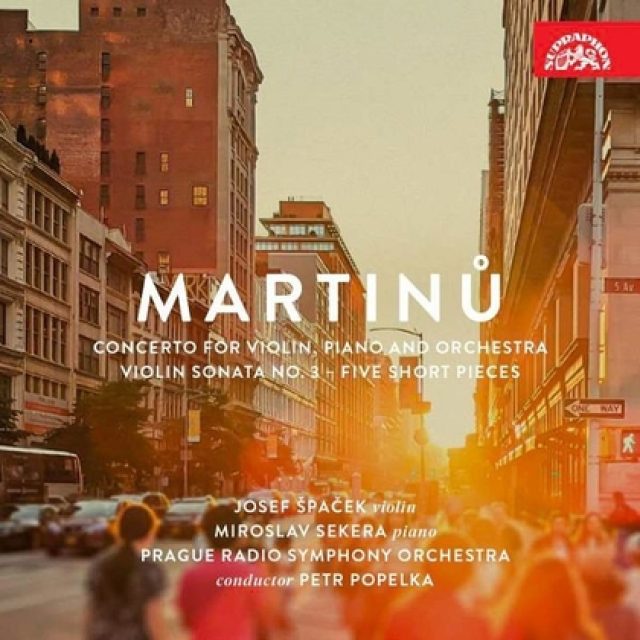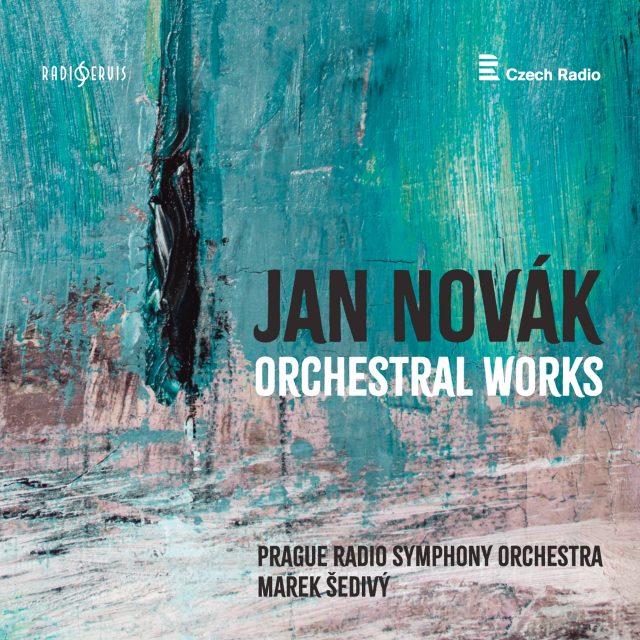Petr Altrichter about French horn and Shostakovich
The orchestra and conductor Petr Altrichter are preparing a programme of Russian music for Monday 12 January. The overture to Khovanshchina by Modest Petrovich Mussorgsky and Reinhold Gliere’s Concerto for French Horn and Orchestra in B major will be performed in the first half at the Rudolfinum’s Dvořák Hall and, as is traditional, broadcast live on the radio station Vltava; the second half will feature Dmitri Shostakovich’s 10th Symphony.
The conductor studied the French horn in the past and has naturally retained a very close relationship to the instrument. He is unstinting in his appreciation for the soloist, saying:
Katka and I have played together as musicians and I would sum up what I know of her in her in the words JOY and GENUNINESS. I don’t know any higher values in music!
Where would you place the Gliere Concerto in a ranking of your favourite horn concertos?
Very high, because it isn’t written just to demonstrate mastery of the instrument. It is the writer’s musical statement and goes further than concertos usually do.
Do you experience horn players’ musical accompaniment differently than that of other instrumentalists?
Yes. Though it’s a long time ago and all that remains are memories, something has stayed with me. Former familiarity with an instrument can’t be forgotten. The French horn is an instrument that’s very close to me – by the way, that also goes for the horn as an instrument in the orchestra.
How did your relationship to the music of Dmitri Shostakovich develop? Did he grab you immediately, or was it harder to get into his work?
Immediately! And my love of it is constantly growing. The more I know him, the more I regard him as a great. His music never pales in my ears. It doesn’t become mundane or empty. Precisely the opposite! Shostakovich is a giant, a titan of the 20th century who sinks his fingers into the deepest, most hidden wounds and scars in each of us and says: “Look! And if you’re able, comprehend!” It sounds pathetic, but that’s how I feel it. It’s hard to express.
Musicologists find quotations and references in his 10th Symphony. What is about the piece that most speaks to you?
The history of this symphony is well known, very troubled, and hard to compare with anything else in the history of music. It starts with the general expectation of a symphony in celebration of Stalin and victory in 1945. Instead, to everybody’s surprise, the Symphony no. 9 was born. It is lighter, a kind of virtuoso byway, basically Shostakovich’s apology – that he had no alternative, the “great” symphony would be next. Then, however, he went for a long time without any symphony (perhaps the composer was waiting for Stalin to die so he wouldn’t have to write the celebratory composition?). But it seems it will all remain at the level of speculation. The 10th Symphony was written at the time of Stalin’s death and was disapproved of and criticised.
Shostakovich’s “penitent confession” at a congress of the Moscow branch of the Union of Composers, where he had to explain why he wrote this “failed” symphony, has been preserved. It is renowned for a large number of quotations and cryptograms – some were deciphered immediately, some quite recently, and some will evidently never be deciphered… One could really discuss the 10th Symphony at great length. In any case, today it’s ranked among Shostakovich’s greatest. I have very strong memories of it personally – it’s very popular in England.
In conclusion, could you tell us what an ideal day looks like for Petr Altrichter? And how much of it is set aside for music?
I’m still waiting for an “ideal day” – I’m absolutely sure it’ll come one day. I’m just as sure that it won’t end! There will be a lot of music, an infinite lot, and even more joy!



